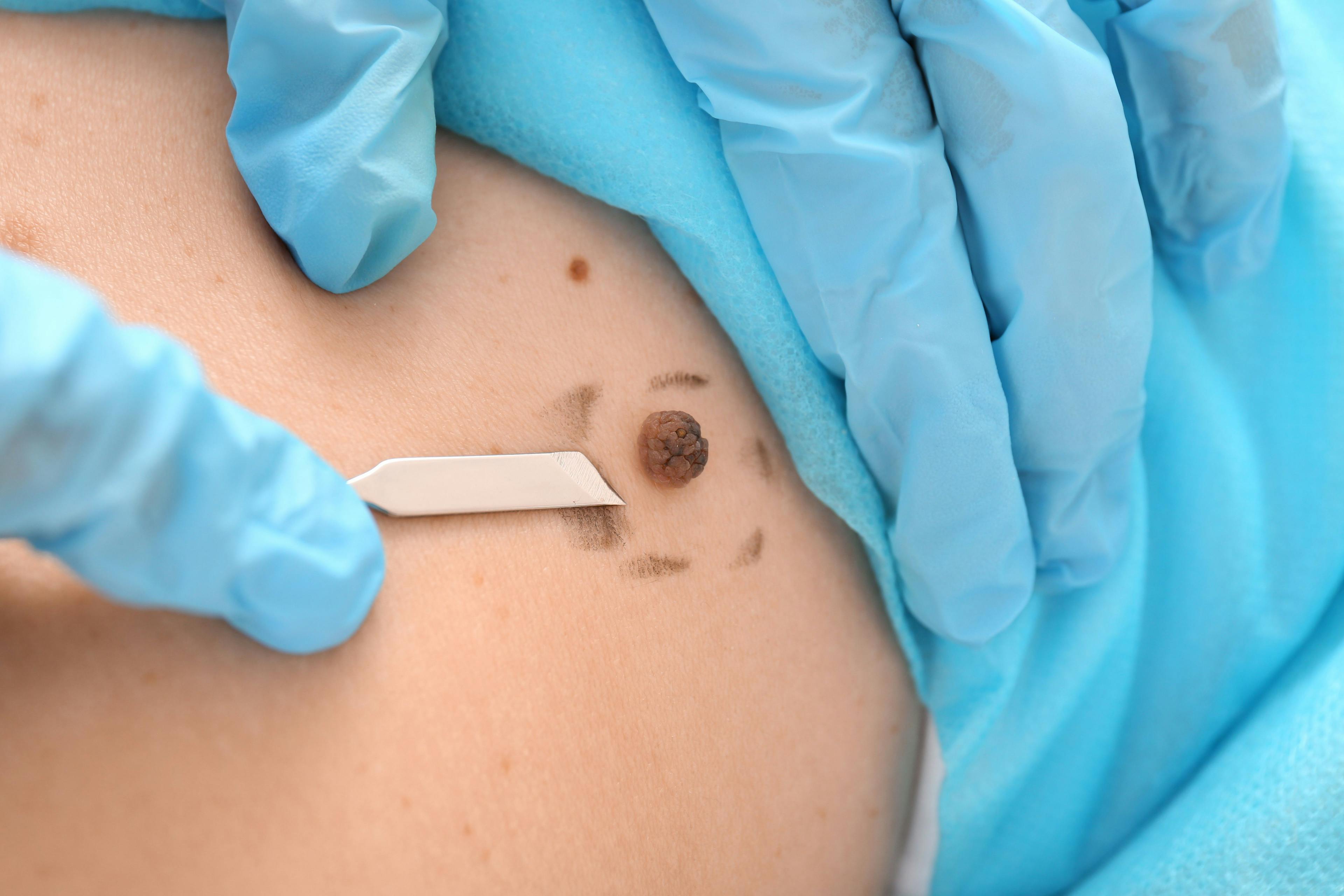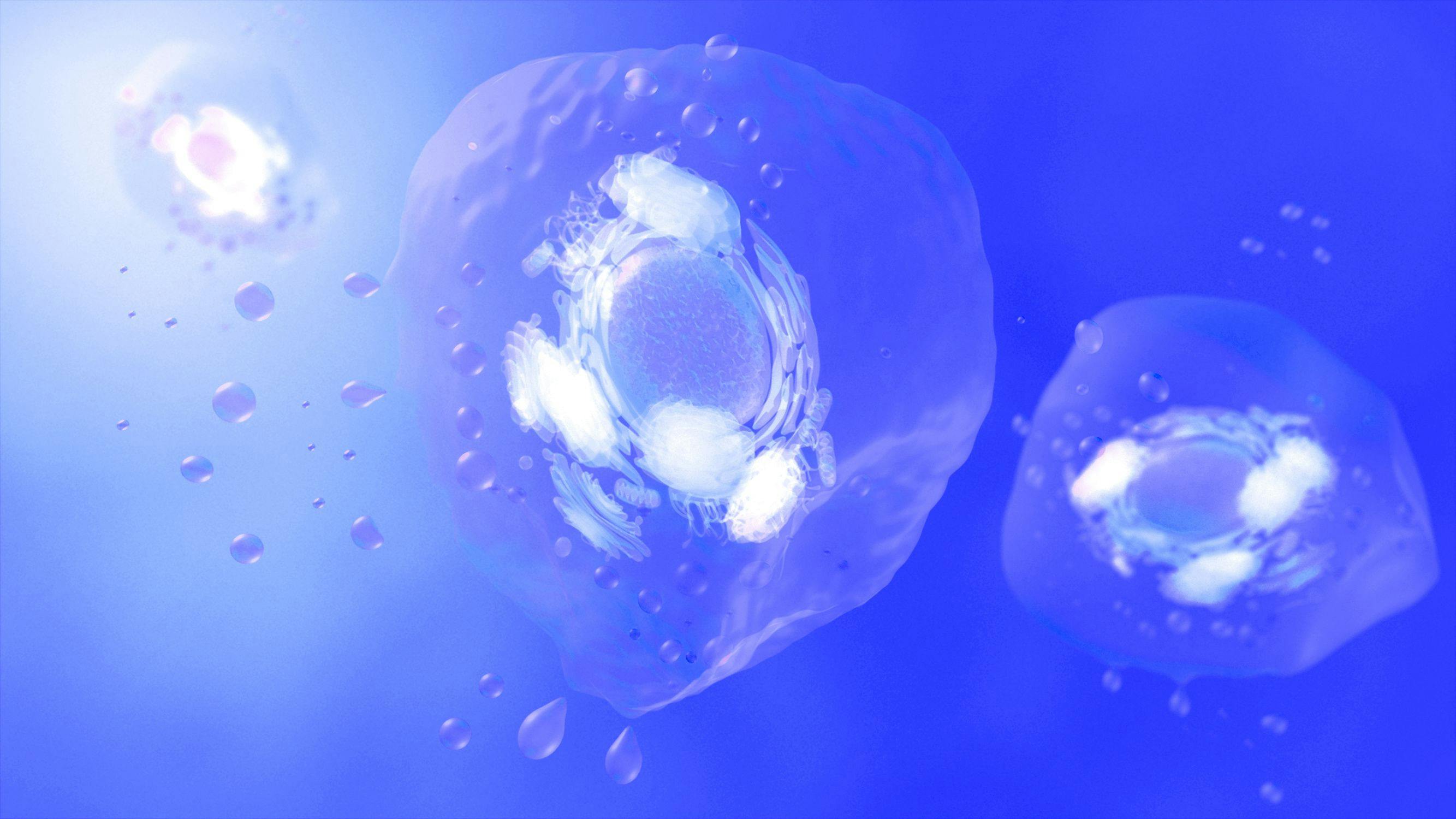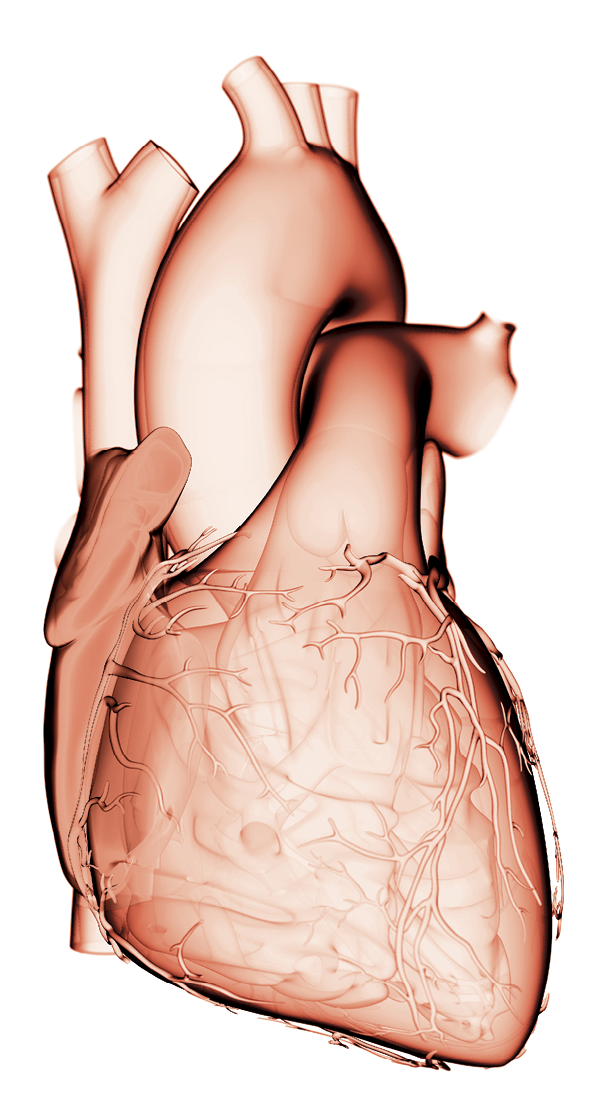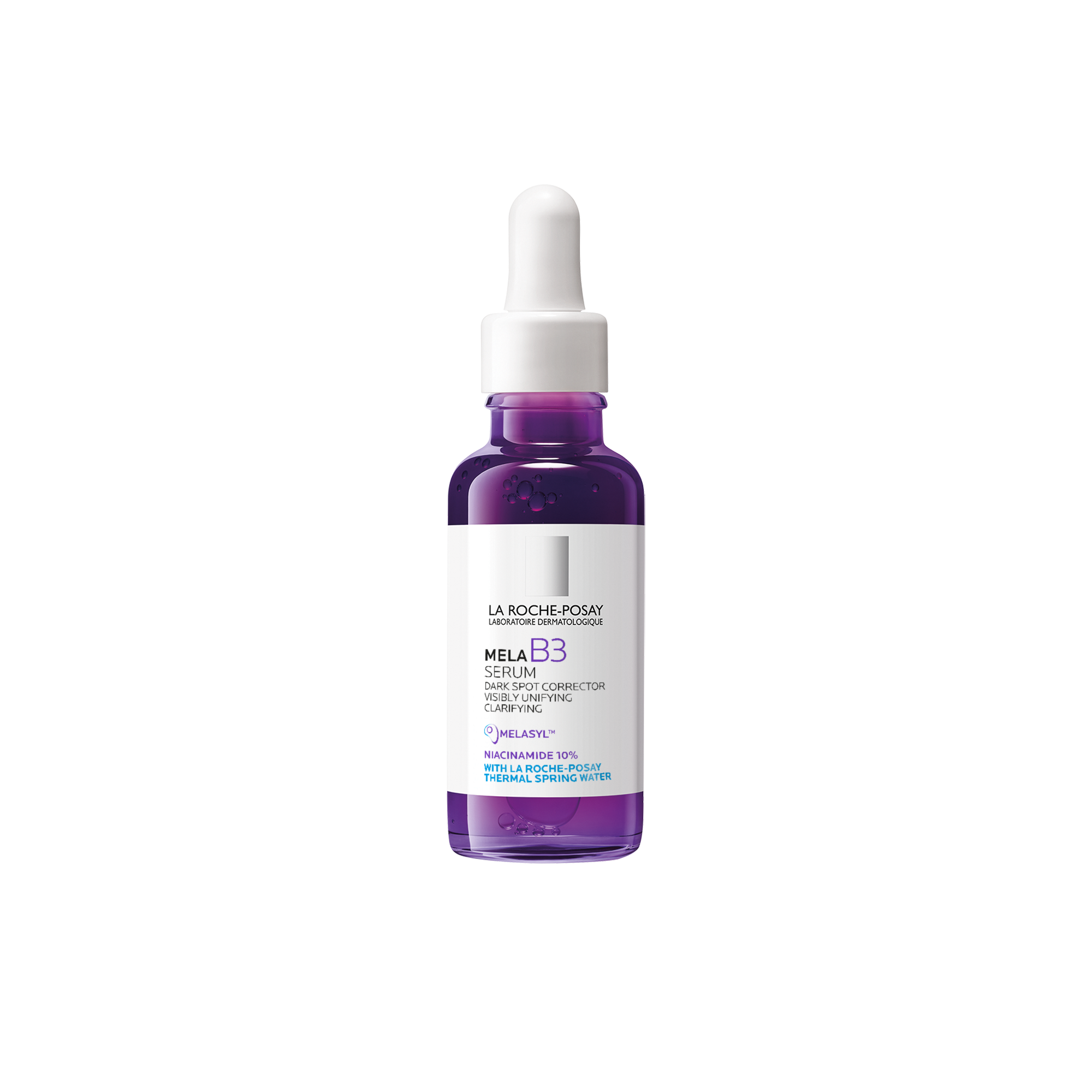- Acne
- Actinic Keratosis
- Aesthetics
- Alopecia
- Atopic Dermatitis
- Buy-and-Bill
- COVID-19
- Case-Based Roundtable
- Chronic Hand Eczema
- Drug Watch
- Eczema
- General Dermatology
- Hidradenitis Suppurativa
- Melasma
- NP and PA
- Pediatric Dermatology
- Pigmentary Disorders
- Practice Management
- Precision Medicine and Biologics
- Prurigo Nodularis
- Psoriasis
- Psoriatic Arthritis
- Rare Disease
- Rosacea
- Skin Cancer
- Vitiligo
- Wound Care
News
Article
Dermatology Times
Hidradenitis Suppurativa in Transgender and Gender-Diverse Patients and Hormone Therapy
Author(s):
Researchers found that patients who initiated gender-affirming hormone therapy with testosterone were more likely to experience a worsening of their HS symptoms.
Hidradenitis suppurativa (HS) is a debilitating skin disease that can lead to a significant diminishment of the quality of life of affected patients. Although the role of sex hormones (ie, estrogen, progesterone, and testosterone) in the development and exacerbation of the disease is still not completely understood, alterations in these hormone levels appear to play a pivotal role in the disease activity for many patients.
Background
Also designated as acne inversa, HS is a multifactorial, chronic, and recurrent inflammatory cutaneous disease of the apocrine gland–bearing areas of the skin (eg, axilla, groin, submammary region, and perianal skin), where patients present with painful, deep-seated inflamed nodules, abscesses, draining sinus tracts, and scarring, which can be a significant psychological and physical burden on patients and profoundly impact their quality of life. Lesions may also extend to the buttocks, thighs, chest, scalp, and retroauricular areas.
Several different factors are implicated in the development and exacerbation of HS, including an uptick in the occurrence of the disease after the onset of puberty; alterations in disease activity during times of hormonal change, such as menses and pregnancy; and HS comorbidities, such as acne, depression, follicular occlusion disorders, inflammatory bowel disease (eg, Crohn disease), metabolic syndrome, spondyloarthropathy, and polycystic ovarian syndrome. Together, these suggest a role of hormones in the pathogenesis of the disease.
Fluctuating hormone levels may present a therapeutic dilemma not only for cisgender patients suffering from HS whose sense of personal identity corresponds to the sex and gender assigned to them at birth but also for transgender and gender-diverse (TGD) patients who have incongruence between their birth sex and gender identity, leading to gender dysphoria, and who may be taking hormone therapies to help them achieve their gender-affirming goals.
New Research
“In our society today—and reflected in the patient population at the HS clinic and the Transgender and Intersex Specialty Care Clinic here at the Mayo Clinic—there is a definite increase in the number of TGD patients we see presenting with HS. It has been suggested based on prior case reports that patients who receive testosterone for gender-affirming hormone therapy [GAHT] treatment may experience worsening of HS, and our study sought to further investigate this,” said Reese L. Imhof, MD, a PGY-3 dermatology resident in the Department of Dermatology at Mayo Clinic in Rochester, Minnesota.
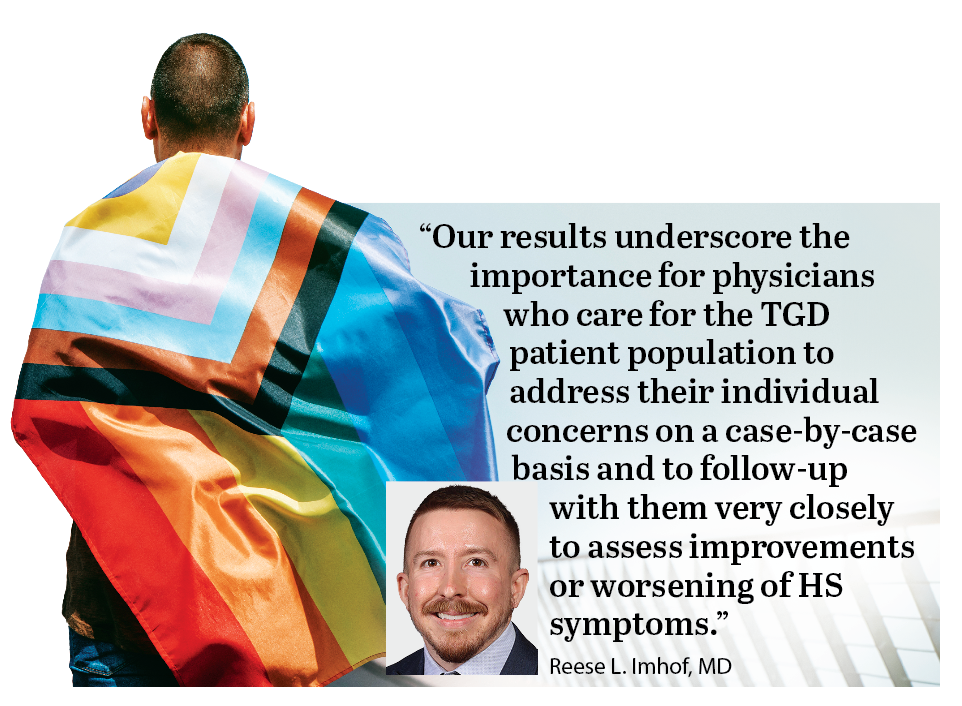
A recent study1 conducted by Imhof and fellow colleagues confirmed the suspicions that some TGD patients on androgen hormone therapy may experience a worsening of their HS symptoms, whereas those taking GAHT treatments with estradiol and spironolactone may see an improvement in their HS symptoms. This may create a challenge for physicians and their TGD patients with HS.
In the retrospective study, researchers performed a search of Mayo Clinic’s electronic medical records to identify adult patients between 1990 and 2022 with gender incongruence/dysphoria and a diagnosis of HS. A total of 24 patients met the study’s inclusion criteria, including adult patients who consented to research, identified as TGD, and met the diagnostic criteria for HS. Study data showed that, overall, 18 individuals (75%) were on GAHT, with 9 individuals (50%) diagnosed with HS before initiation of GAHT. Although 15 patients (62.5%) presented with Hurley stage I, only 11 patients (45.8%) remained at Hurley stage I. In the 13 patients in whom testosterone treatment was initiated, 9 patients (69.2%) experienced a worsening of their HS symptoms, 4 patients (30.8%) had no change, and none of the patients saw any improvement in their HS disease. These results were unsurprisingly found to be in stark contrast to the patients who initiated GAHT (n =5) with estradiol and spironolactone treatments, where all of them experienced improvement in their HS symptoms. (Table)
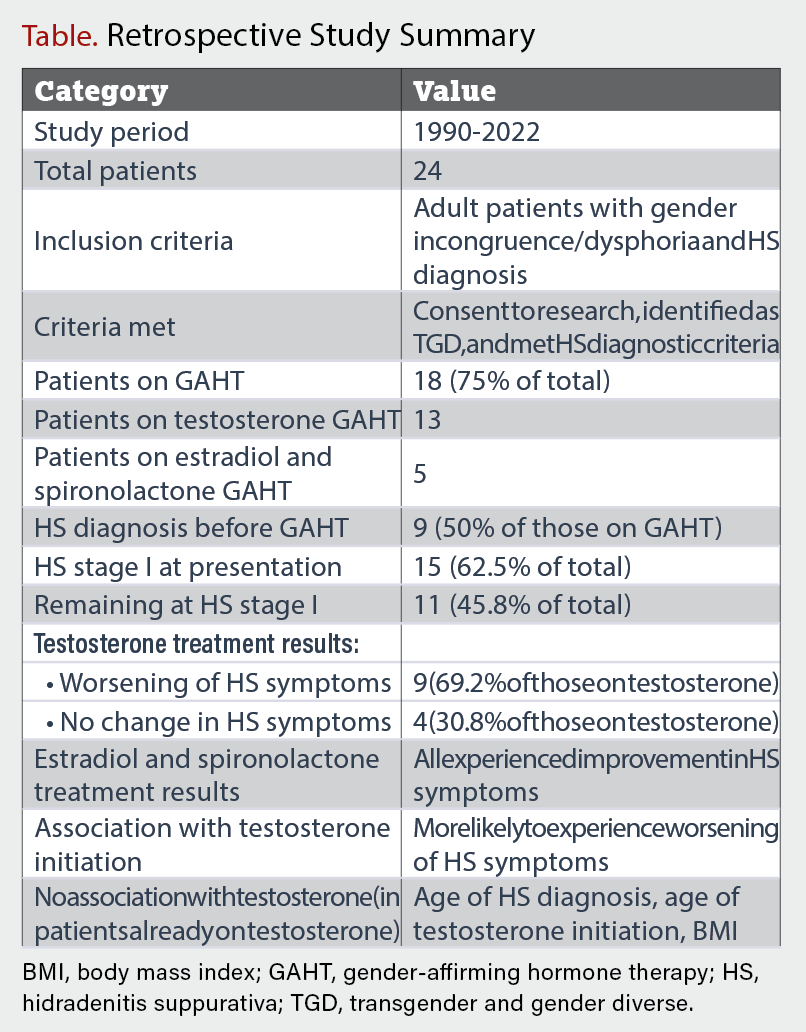
The researchers also found that patients who initiated GAHT with testosterone were more likely to experience a worsening of their HS symptoms. In patients already on testosterone, data showed there was no association between age of HS diagnosis, age of testosterone initiation, or body mass index with a worsening of HS symptoms.
Key Considerations Going Forward
“The results we found in our small TGD patient population highlights the distinct challenges physicians encounter when treating HS in this patient population. Our results underscore the importance for physicians who care for the TGD patient population to address their individual concerns on a case-by-case basis and to follow up with them very closely to assess improvements or worsening of HS symptoms,” Imhof said.
The patients who present in Mayo Clinic’s HS referral center have often already experienced their first HS treatment failure, Imhof explained, such as oral antibiotics, topical antiseptic washes, and antibiotic soaks. These patients with more advanced HS disease and a higher Hurley grading level often require treatment with biologic treatments such as tumor necrosis factor-α inhibitors.
Spironolactone is an antiandrogen treatment that is frequently used as an adjuvant to treat cisgender women with HS. However, one of the challenges when using spironolactone in someone who is on testosterone hormone therapy is not to interfere with their goals of hormone therapy, Imhof explained. As such, TGD patients must be carefully counseled beforehand about the potential effects of this medication vis-à-vis their gender-affirming treatment goals. In contrast, patients who are planning to start on hormone therapy with estradiol and/or spironolactone, which is often a treatment for transgender women, might experience improvements in their HS symptoms.
“Fortunately, there is an increasing body of evidence in the literature regarding the benefits of hormone therapy for the TGD patient population, and fellow colleagues should not be apprehensive to initiate such treatments in patients who are wanting to start on GAHT as part of their goals for their gender-affirming care. Again, it is very important to counsel your patients that GAHT with testosterone could result in a worsening and flaring of HS symptoms. Patients can benefit from careful and individualized treatment choices and making appropriate adjustments to patients’ treatment plan as needed, as well as keeping close follow-up visits,” Imhof said.
Disclosures: None relevant
Reference
1. Imhof RL, Todd A, Davidge-Pitts CJ, Alavi A. Hidradenitis suppurativa in transgender and gender diverse patients: a retrospective review with examination of the role of hormone therapy. J Am Acad Dermatol. Published online December 10, 2023. doi:10.1016/j.jaad.2023.12.009
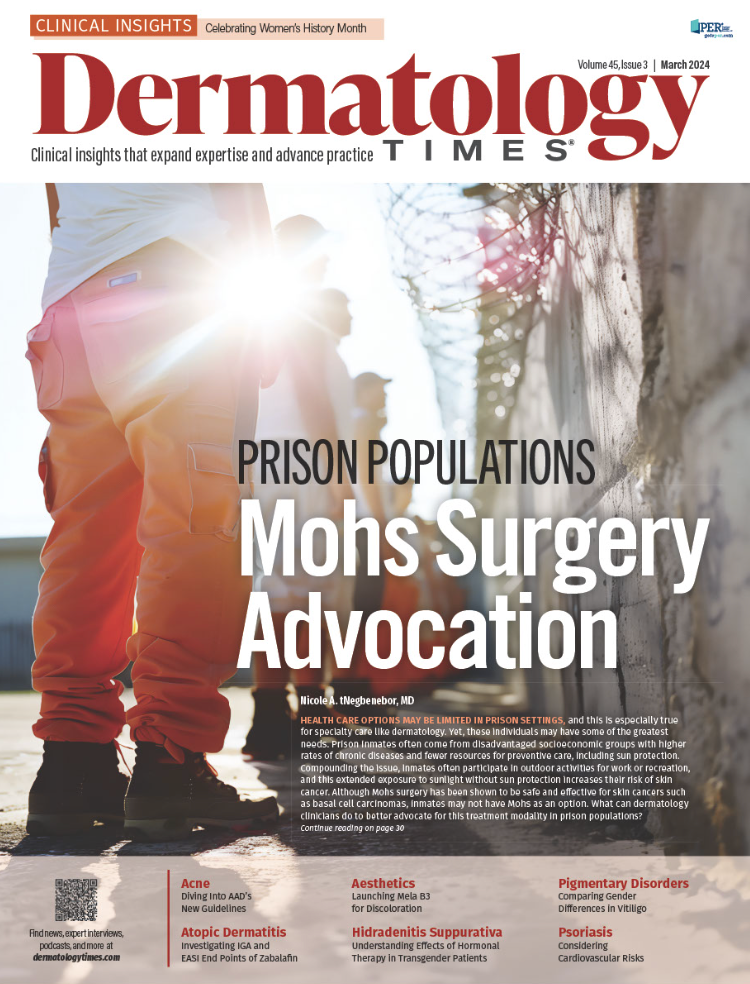
Newsletter
Like what you’re reading? Subscribe to Dermatology Times for weekly updates on therapies, innovations, and real-world practice tips.



